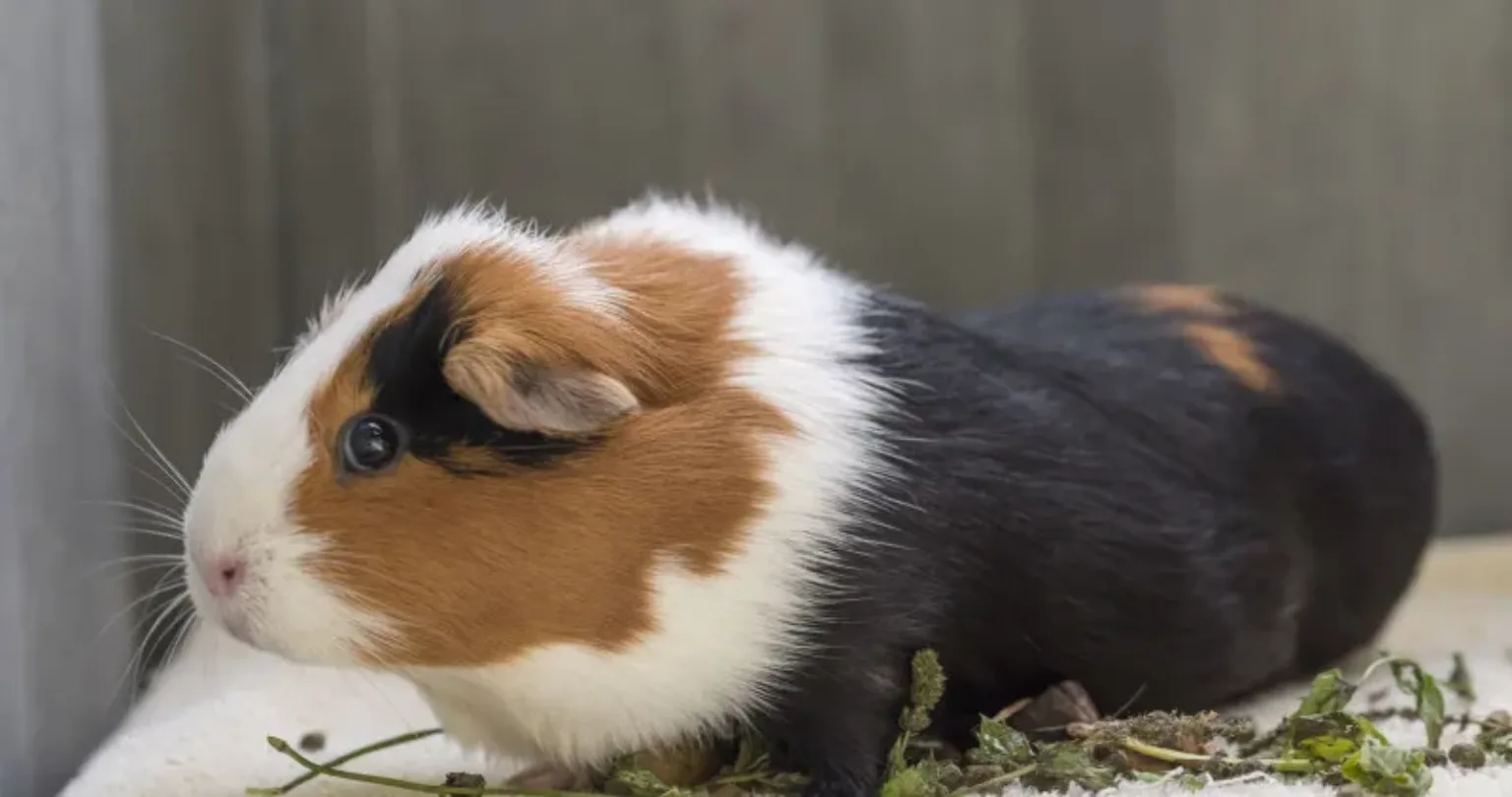Guinea pigs can be housed outdoors and indoors all year round, but when it starts getting a bit chilly, there are a couple of things to consider, especially when it comes to caring for your guinea pigs during winter. Check out our top tips below:
Housing your guinea pigs outdoors
- Guinea pigs like to snuggle up together when it’s cold. Make sure your piggy has a friend to snuggle up.
- Guinea pigs do this in the wild too. If you are looking for a companion for your guinea pig, we have lots of single guinea pigs looking for a loving home with a significant other and we may be able to help with the introductions!
- If you choose to keep your guinea pigs outdoors, consider moving their hutch to a sheltered or covered area like a shed or outbuilding to protect them from the wind and rain.
- A damp hutch can cause serious health issues to your guinea pigs.
- You can also set up your guinea pigs’ hutch and run in a large garage, as long as it isn’t used by cars or other vehicles.
- Cover hutches with a fitted hutch cover or blankets and tarpaulin to keep the frost and wind out, particularly around the doors and windows.
- Make sure your guinea pigs’ outside run has a cover such as tarpaulin or corrugated plastic in case of sudden showers.
- Fill their hutch or overnight space with extra hay for them to bury themselves in and keep warm.
- Provide plenty of warm, dry hiding places in their hutch and run such as wooden boxes, tunnels and cat carriers. For any placed in the run, ensure they provide areas that are off the cold, hard ground.
- Fill all their hides with lots of soft hay to allow the guinea pigs areas to retreat to if the temperature is cold. You can even place towels or blankets over any hiding spaces to help provide some extra warmth.
- During freezing weather, you can use pet safe snuggle pads to keep them warm. Wrap these in a towel and place them underneath a hiding space that they are likely to sit under.
- Cover drinking bottles with bubble wrap to keep the water from freezing. Check bowls regularly to make sure they have not frozen over.
- Guinea pigs are likely to spend more of their time in their cosy sleeping areas and hiding spaces over the winter months, so make sure you do daily spot cleans to remove and replace any dirty bedding. This will help your piggies to stay comfortable and warm, whilst also helping to prevent health problems.
- Regularly health check your guinea pigs and monitor their weight. If you see any signs of them becoming unwell or not acting themselves, take them to your guinea pig friendly vet.
- Continue to feed your guinea pigs fresh forage and vegetables daily, as it can help them to stay healthy and to fight off any colds and chills.
Housing your guinea pigs inside
Guinea pigs will be more than happy to be welcomed into your home when it’s cold outside. They can be easily accommodated and make very well-behaved house guests. Older or poorly guinea pigs in particular will benefit from living indoors over the winter. This will help them avoid the cold temperatures, as they may struggle to regulate their body temperature.
- If you have the space, a C&C cage can be set up in your home for your guinea pigs to move into during the winter months. This should still be the same size as the space they have outdoors to prevent behaviour problems.
If you’re going to bring your guinea pigs inside for the winter, make sure you wait until the weather is much warmer and a consistent temperature before moving them back out. You shouldn’t just bring your guinea pigs in for the night and put them out again during the day as they can struggle with the temperature changes.
- Provide plenty of hiding places in their indoor enclosure, like boxes and carriers and fill with lots of hay for snug places to cuddle up.
- Fresh forage can be grown in trays for them to graze on or you can fill trays with good quality hay and dried forage.

